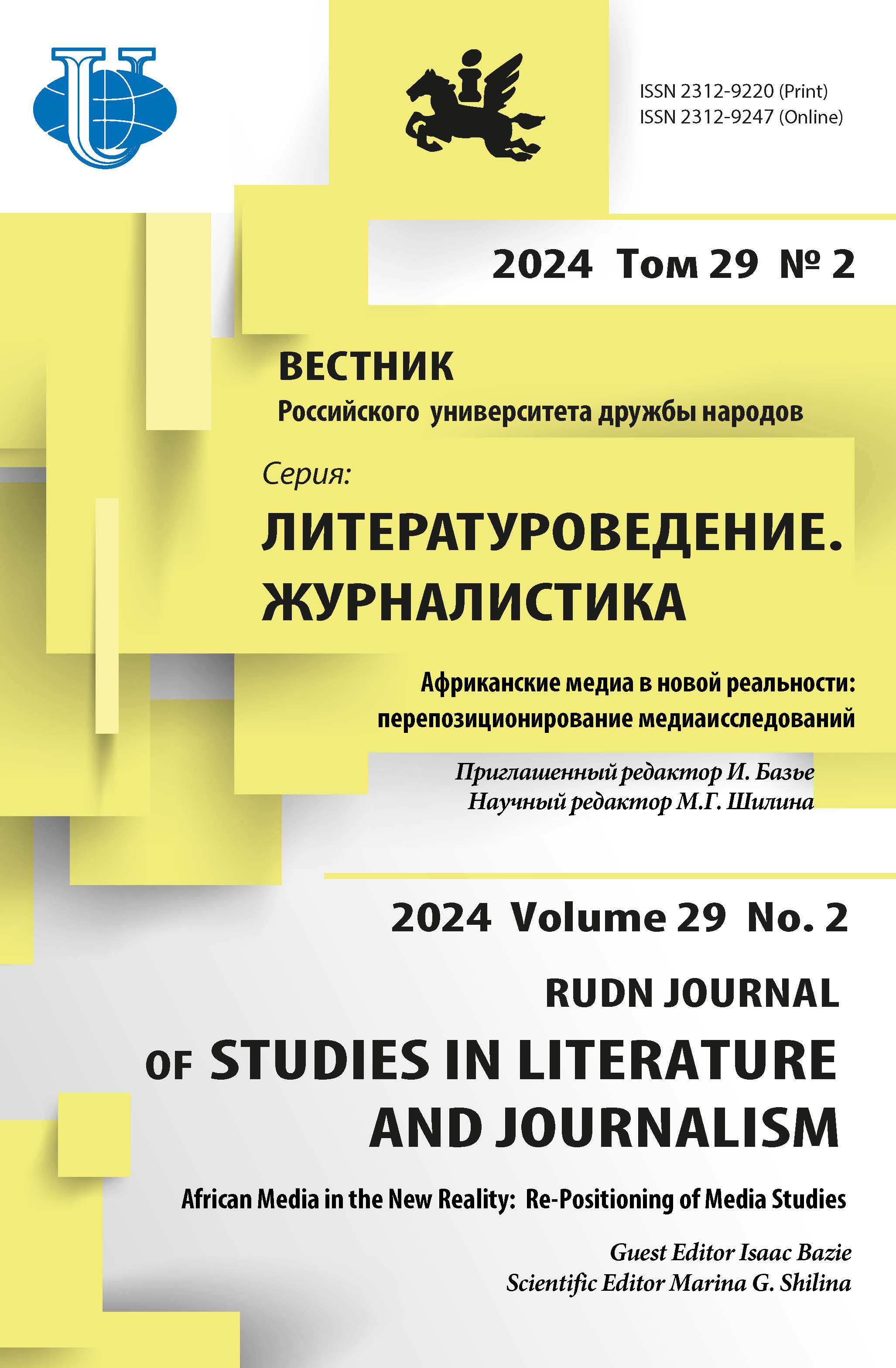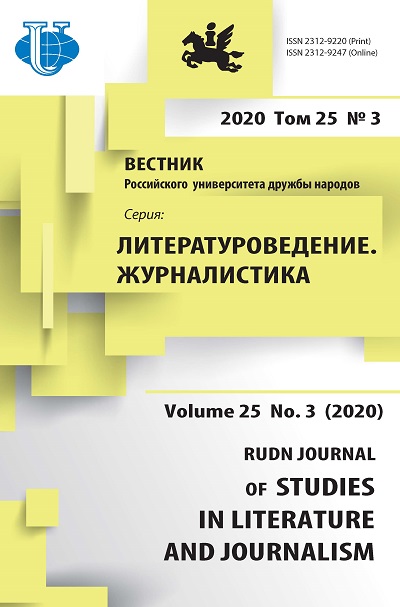Классификация альтернативных медиа
- Авторы: Дмитриев О.А.1
-
Учреждения:
- Международное информационное агентство «Россия сегодня»
- Выпуск: Том 25, № 3 (2020)
- Страницы: 567-575
- Раздел: Журналистика
- URL: https://journals.rudn.ru/literary-criticism/article/view/24832
- DOI: https://doi.org/10.22363/2312-9220-2020-25-3-567-575
Цитировать
Полный текст
Аннотация
Статья представляет собой попытку классификации альтернативных медиа, которые последовательно завоевывают доверие аудитории в онлайн-пространстве, находят свою аудиторию в конфронтации с мейнстримовскими СМИ. В научной литературе пока отсутствует системное описание альтернативных изданий, среди исследователей нет единого мнения по поводу их функциональных особенностей. Предложенная классификация - первый шаг в изучении специфики и перспектив альтернативных медиа. В качестве оснований для классификации рассматриваются несколько параметров: средства доставки новостей, ареал распространения информации, возможности монетизации контента. Особое внимание уделяется достоверности публикуемой информации, а также модели верификации сообщений международных альтернативных медиа. Результаты исследования выявили проблемные моменты, возникающие при изучении альтернативных медиа. Отмечено, что одно и то же СМИ может быть как альтернативным для одной группы целевой аудитории, так и мейнстримовским для другой.
Ключевые слова
Об авторах
Олег Аркадьевич Дмитриев
Международное информационное агентство «Россия сегодня»
Автор, ответственный за переписку.
Email: o.dmitriev@rian.ru
кандидат филологических наук, советник
Российская Федерация, 119021, Москва, Зубовский б-р, 4Список литературы
- Chomsky N. Necessary illusions: thought control in democratic societies. South End Press, 1989.
- Schiffrin D. The transformation of experience and identity in narrative. University of Colorado, Boulder, Linguistics Colloquium, 1993.
- Рэндалл Д. Универсальный журналист. М.: Международный центр журналистики, 1996.
- Radio Caroline. The story as told by Tom Lodge. URL: http://www.offshoreradio. co.uk/story.htm (дата обращения: 16.03.2020).
- Карякина К.А. Актуальные формы и типологические модели новых медиа // Вестник Московского университета. Серия 10. Журналистика. 2010. № 3. С. 128-129.
- Юнг К.Г. Психологические типы. СПб.: Азбука, 2001.
- Купцова Е.В. Бизнес-планирование: учебник и практикум для СПО. М.: Юрайт, 2019.
- Аудитория Тelegram: результаты анкетирования 82 000 анкет. URL: https://texterra.ru/ blog/auditoriya-telegram-rezultaty-issledovaniya-anket.html (дата обращения: 16.03.2020).
- Виниченко В.М. Феномен «Аль-Джазиры» на ближневосточном и глобальном информационных рынках // Научные ведомости Белгородского государственного университета. Серия: Гуманитарные науки. 2014. Т. 22. № 13. С. 156-166.
- Cambridge Dictionary. URL: https://dictionary.cambridge.org/
- Туккель И.Л. Управление инновационными проектами. Серия: Учебная литература для вузов. СПб.: БХВ-Петербург, 2011.
- Сумская А.С. Опыт реализации краудфандинговых проектов специалистами массмедиа // Знак: проблемное поле медиаобразования. 2014. № 1. С. 83-89.
- Ruptly Verification Unit. URL: https://vu.ruptly.tv/about-us/
















